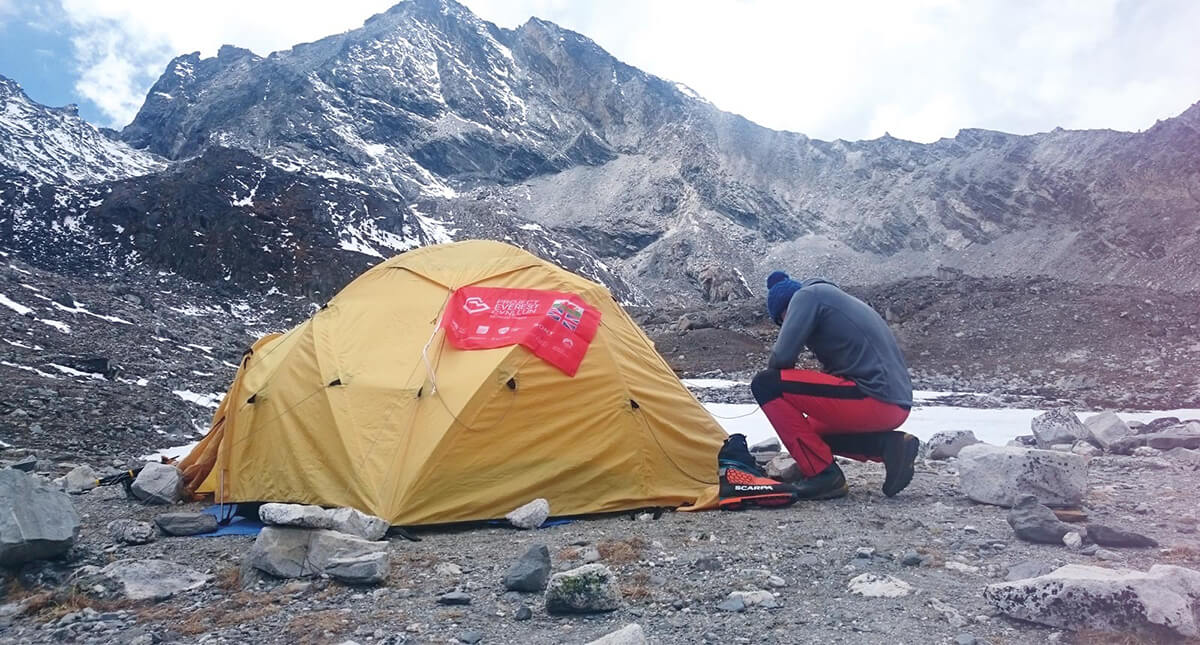The project will push Richard further than ever before, in an attempt to collect groundbreaking data that will aid in the understanding of the mechanisms surrounding cognitive decline, psychological resilience and the link to dementia. The primary focus of the expedition will be exploring the link between low blood oxygen levels in the brain and cognition.
To do so, Richard endeavours to be the first human in history to collect a blood sample and muscle biopsy from the summit of Mount Everest without using supplemental oxygen.
Professor Damian Bailey explains; ‘Hypoxia [low oxygen] can almost give you a day in the life of a dementia patient because you are challenging oxygen glucose delivery to the brain and inducing aspects of cognitive decline in an otherwise healthy person in order to understand the underlying mechanisms. With a combination of acclimatisation and exercise, you improve blood flow and oxygen delivery, and as a consequence you improve cognitive function.’
This project will prove the theory by using high altitude as an alternative model to challenge the brain and induce cognitive decline, whilst also using long-term acclimatisation to demonstrate the possibility of reversing some of those changes and in essence, improving the brain’s health and fitness.
After training for 18 months, and acclimatizing for the first two weeks of the expedition, Richard is now preparing to ascend the summit.
Back in an unusually sunny Cardiff, the team at Limegreentangerine wish Richard the very best of luck with this endeavour that will take a huge step in dementia research.
If you would like to learn more about Project Everest Cynllun, visit Richard Parks’ website where you can follow his gruelling journey.
